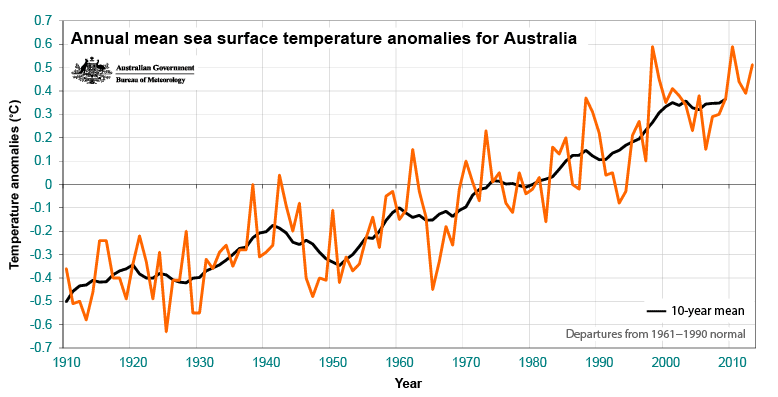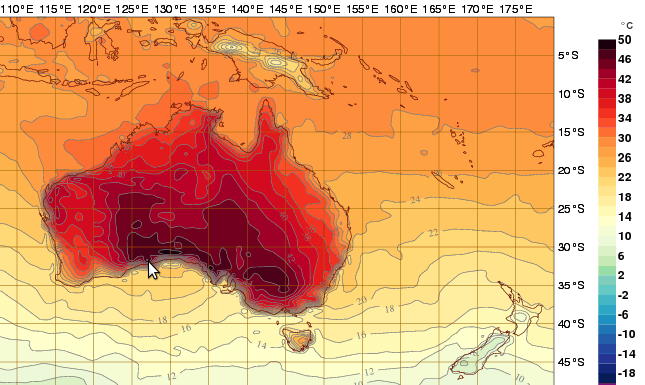2013 was hottest year on record in Australia
Australia has just sweltered through its hottest year on record, […]
Australia has just sweltered through its hottest year on record, according to the Bureau of Meteorology. Average temperatures were 1.20 degrees Celsius above the long-term average of 21.8C, breaking the previous record set in 2005 by 0.17C.
Professor Karoly: “In the model experiments, it is not possible to reach such a temperature record due to natural climate variations alone”
“While many climate extremes cannot be directly attributed to a changing climate, the burden of extremes Australia is experiencing is a product of climate change and requires a coordinated national response.”
The 2013 record high is also remarkable because it occurred not in an El Nino year (where a warm ocean current can push up temperatures), but a normal year. http://www.businessinsider.com.au/more-extremes-of-heat-wind-floods-bushfires-on-the-agenda-after-australias-hottest-year-2014-1
Annual climate statement 2013
Data collected and analysed by the Bureau of Meteorology show that 2013 was Australia’s warmest year on record while rainfall was slightly below average nationally.
- Summer 2012–13 was the warmest on record nationally, spring was also the warmest on record and winter the third warmest
- Overall, 2013 was Australia’s warmest year on record: annual national mean temperature was +1.20 °C above average
- All States and the Northern Territory ranked in the four warmest years on record
- Nationally-averaged rainfall was slightly below average for the year, with 428 mm (1961–1990 average 465 mm)
- Rainfall was mostly below average for the inland east and centre, and above average for the east coast, northern Tasmania and parts of Western Australia

The black line shows the 10-year moving average.
URL http://www.bom.gov.au/climate/current/annual/aus/2013/
Australia records its warmest spring: The spring of 2013 has been Australia’s warmest on record. Mean temperatures for the season were 1.57C above the 1961-1990 average, surpassing the previous record of 1.43C (set in 2006) by 0.14C. Daytime maximum temperatures were also the highest on record, coming in 2.07C above average and 0.24C above the previous record (also set in 2006), while overnight minimum temperatures were the fourth-warmest on record.
The warmth was most dramatic in September, which saw a mean temperature anomaly of +2.75C, setting a new monthly record by more than a degree. October was also a very warm month, 1.43C above average.
Heatwave expected to hit one-third of Australia over Christmas – This is the first protracted heatwave of the spring-summer period over such a large area.
Related
- Australia record-breaking heat wave bushfires rage as temperatures hit 54C
- Australia Rings In The New Year With Record-Breaking Heat Wave
- Australian heatwave: Bushfires rage as temperatures hit 54
- Tony Abbott’s new year’s resolution: disavow climate change extremist Maurice Newman
2013 Heat waves exacerbated by climate change
